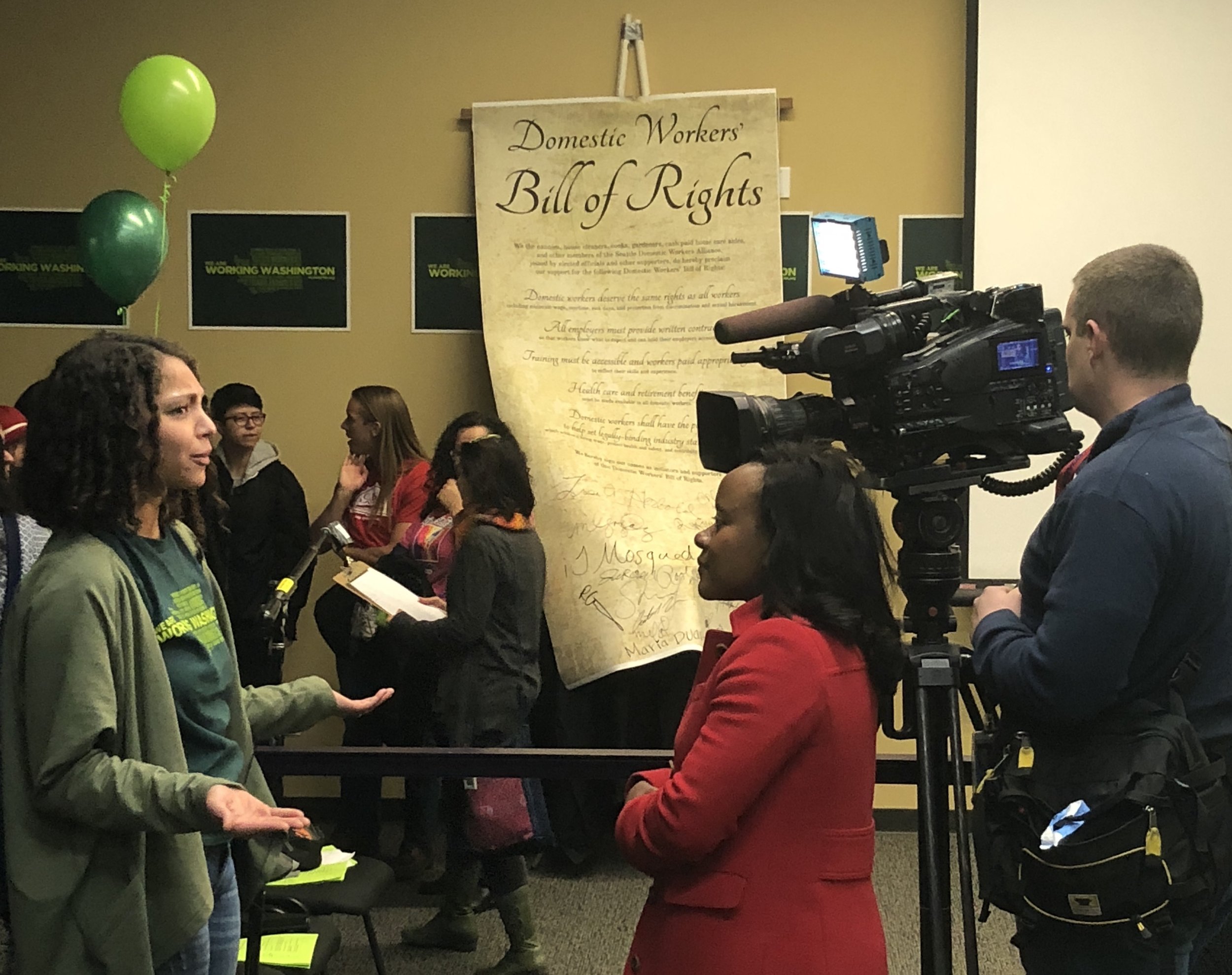Last month, Seattle City Council voted unanimously to pass a groundbreaking municipal Domestic Workers Bill of Rights which ensures nannies & housecleaners working in Seattle get the basic rights and benefits every worker needs, and creates a new way to set higher industry standards & make further advances.
Until now, few nannies and house cleaners have had access to basic rights and benefits. Some have even been excluded from the minimum wage. And there’s been no good way for workers to come together to set industry-wide standards and improve conditions.
The new Domestic Workers Bill of Rights brings domestic workers from invisible to powerful by:
Covering all part-time, full-time, independent contractors, and live-in domestic workers in the city — regardless of whether they are technically employed by an agency or a family, and regardless of whether they are classified as employees.
Ensuring all domestic workers are covered by the minimum wage and receive rest breaks.
Establishing a Domestic Workers Standards Board which includes workers, employers, and community representatives and has the power to establish industry-wide standards on wages, benefits, training, and other issues.
The Domestic Workers Standards Board is a breakthrough step for workers' rights in Seattle and across the country — a new model of worker power being led by women and people of color who have been too long excluded from other basic legal protections.
Here's how it happened.
We organized.
Nannies, housecleaners, and other domestic workers with Working Washington, Casa Latina, and the National Domestic Workers Alliance have been organizing for the Domestic Workers Bill of Rights for more than a year.
We shared our stories.
We publicly kicked off our campaign in December with a major event where elected officials heard from nannies and housecleaners and signed on in support of a citywide Domestic Workers Bill of Rights.
We showed our numbers.
In March, we assembled a large-scale display of diapers and gloves at Seattle City Hall, representing each of the housecleaners and nannies in the Seattle area — one diaper for each nanny (about 8,000), one glove-finger for each house cleaner (about 7,000). We also released a report analyzing the conditions facing domestic workers in the city.
We broke down doors.
In June, Councilmember Teresa Mosqueda introduced a breakthrough Domestic Workers Bill of Rights — so we broke through some doors of our own at City Hall!
And we made history.
Passing the Bill of Rights means domestic workers in Seattle have ended their exclusion from basic labor standards. They've won important new rights and protections. And most importantly, they've won a whole new model of worker power — a first-in-the-nation Domestic Workers Standards Board which empowers workers & employers to come together to effectively set industry standards on wages, benefits, training, and other issues.
This is a huge step forward. It’s another breakthrough victory for Working Washington members. And just like $15, secure scheduling, paid family leave, and other historic steps for workers rights, it shows how much we can accomplish when come together, speak out, and take action.
Thank you to all the Working Washington members who have gotten us to this point. And if you’re not a member yet, now is the perfect time to join!
















